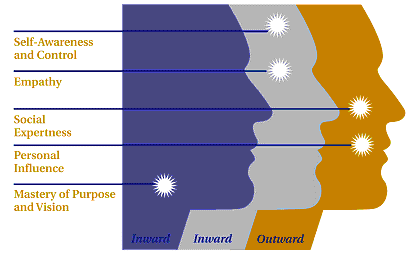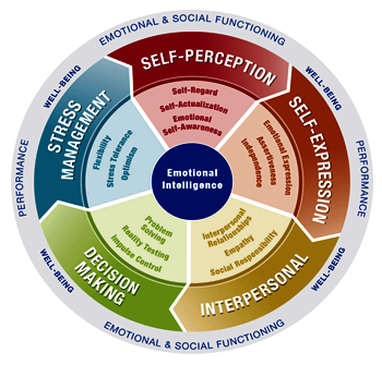EMOTIONAL INTELLIGENCE Training Service
Emotional Skills, Empathy, Social Skills, Relationship Management, Self-Management & More
Training Course Description
“Be not disturbed at being misunderstood; be disturbed rather at not being understanding.”
~ Chinese Proverb Much has been discovered in the past 30 years on Emotional Intelligence and countless studies show its incredible role in an individual’s success. It has been shown that, Emotional Intelligence or EI, can be even more critical than the power of the cognitive brain usually measured with IQ. In others words, if you want to succeed, you would be much better off working on your soft skills, empathy, communication skills, understanding others and so on than to become better only at a specific technical skill. Consider the following selection of quotes and studies: “Comparing the three domains, I found that for jobs of all kinds, emotional competencies were twice as prevalent among distinguishing competencies as were technical skills and purely cognitive abilities combined. In general the higher a position in an organization, the more EI mattered: for individuals in leadership positions, 85 percent of their competencies were in the EI domain.”, Daniel Goleman Sales people hired based on emotional skills for a furniture retailer had half drop-out rates in comparison with those who were hired with the old company hiring process (Hay/McBer Research and Innovation Group, 1997).
Software developers are generally highly competent on the IQ part which is perhaps why they can benefit greatly from EI training. Software developers who received EI or were good at emotional skills could develop software three times faster than others. A number of sales agents at L’Oreal were selected based on certain emotional competencies. They performed significantly better than salespeople who were chosen based on the company’s old selection procedure. Some people have read the classic books on EI and think the concept is great, but still wonder what it really means in practice for them. A trainer may think, this is great stuff, but how am I supposed to teach it. The Emotional Intelligence course presented here aims to satisfy both sets of needs. The best way to learn Emotional Intelligence is through group interactions and in a controlled environment such as a training course. This course is designed to cover critical competencies within EI and train the delegates to become much more skilled in EI. Questionnaires, individual exercises, group practicals and home exercises are provided to make sure the delegates get an all around training and can immediately benefit from the skills. You, your staff and your team mates can hugely benefit from the information, methods and skills provided in this course. The EI course can pay huge dividends later on especially in situations where your team is under stress due to deadlines, demanding clients or intense and unproductive meetings. Understanding EI and mastering the skills involving emotional intelligence will greatly help you and your team in difficult situations. |
|
In this highly practical course delegates will learn:
Introduction to EI
Self-Awareness
Self-Management
Self-Motivation
Empathy
Social Awareness
Relationship Management
|
By the end of this course the delegates will be able to:
The Philosophy Behind Emotional Intelligence Training Course
Emotional intelligence covers many areas, and many of the courses offered at INNOWISE can help delegates to become more emotionally skilled. This course however focuses explicitly on the core competencies defined by the EI experts in various books, articles and research studies. This approach helps to structure the entire field of EI, so delegates can easily recognize the importance of each competency, their own strength and weaknesses in each area and the skills involved in mastering each section.
Due to the vast amount of information and studies available for Emotional Intelligence field, not everything can be covered in this one day course. The aim here is to show and define the main areas of EI and learn fundamental skills within each area through extensive repetition and practice so the skills can be put to use immediately after the course. Interested delegates can then take more specific courses, such as Anger Management, Coaching Skills and so on to master each competency. |




